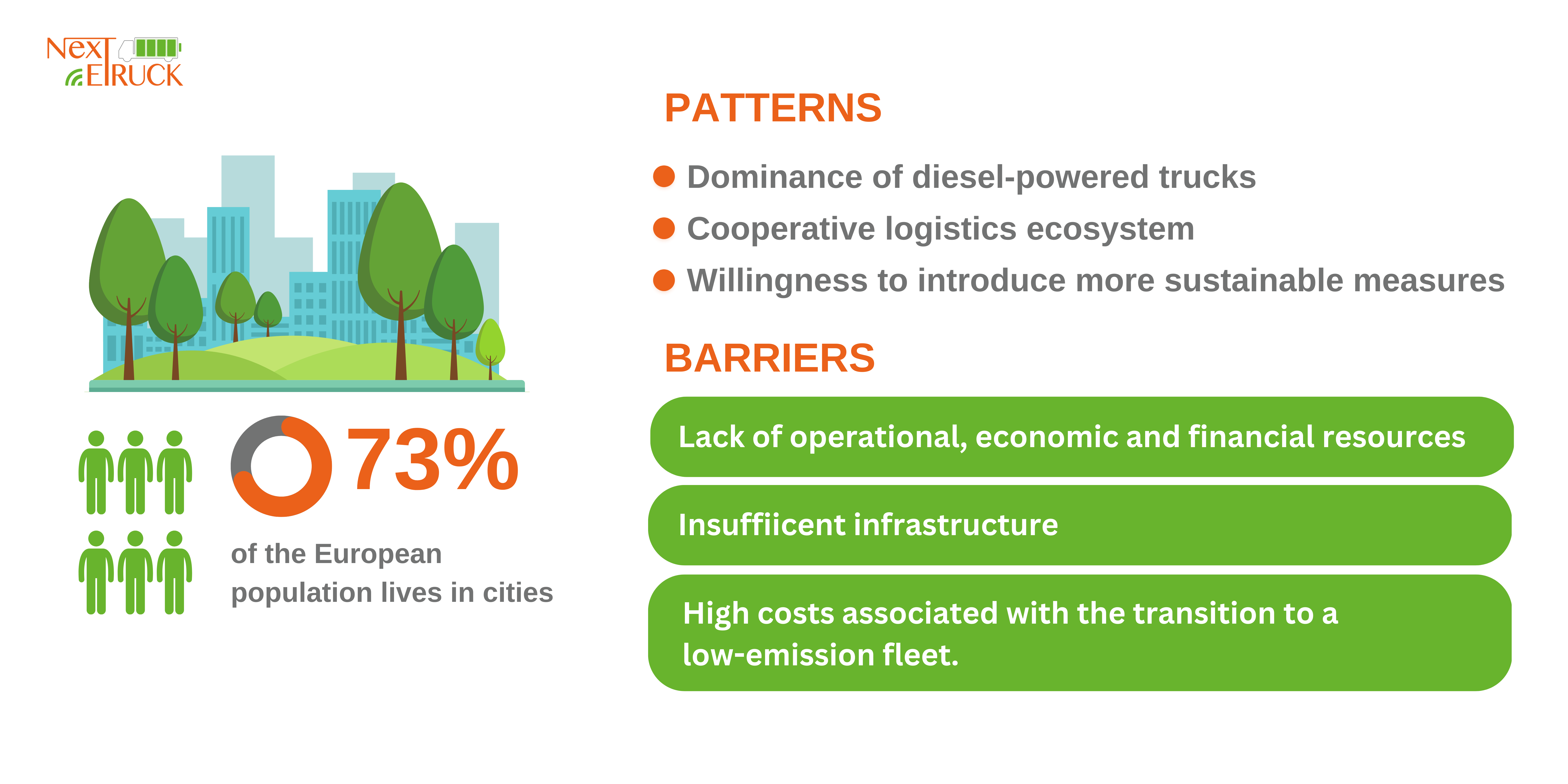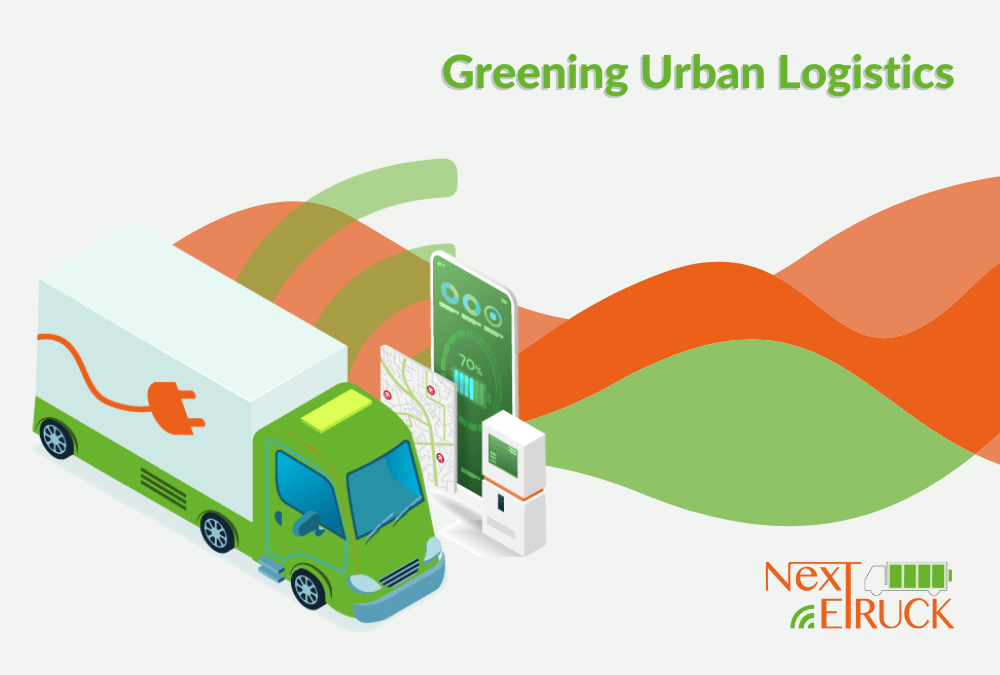The increasing population that lives in cities and the consequent growth of urban logistics represent one of the European Union’s main challenges to mitigate climate change. A recent study from the European Commission provides deeper insights into urban logistics figures and trends. NextETRUCK innovations and use cases have the potential to enhance the shift towards a new sustainable era for urban logistics.
The Europen Union is determined to reduce greenhouse emissions by 55% in 2030 and 90% in 2050, tackling the climatic crisis under the scope of the EU Green Deal. In this context, it looks closely at the transport industry as one of the most polluting ones.

A recent study from the European Commission on “New Mobility Patterns in European Cities – Specific Survey on Urban Logistics” analyses the main patterns and barriers experienced by the sector in moving towards sustainability. The results depict a dominant presence of diesel-powered vehicles but also high levels of collaboration across different actors in the chain and a will for low emission transition. The main obstacles to this sustainable transition are the cost of fleet replenishment and the lack of infrastructure and support from local authorities. Despite the advances in electrification in passenger cars, its application to trucks is still challenging.
As part of its mission, NextETRUCK aims to overcome these challenges to accelerate the low-emissions tendency. One of the project’s strengths is to tackle the shortage of charging points by introducing cutting-edge powertrains and rapid-charging systems. Together with new business models designed by the consortium, the project enhances the competitiveness of these trucks over the traditional diesel ones.

